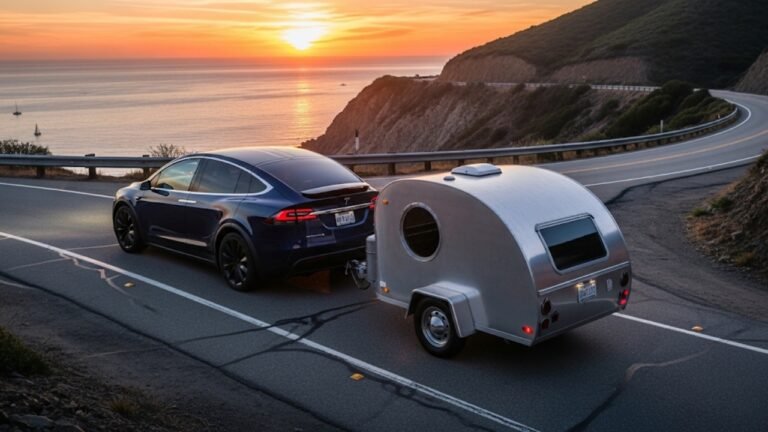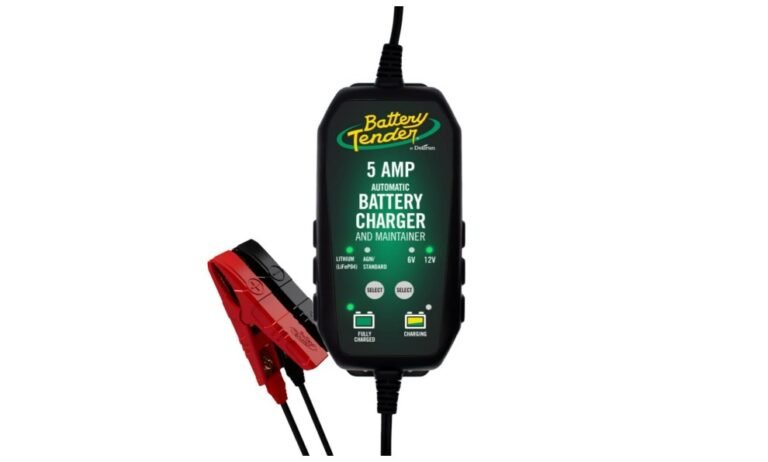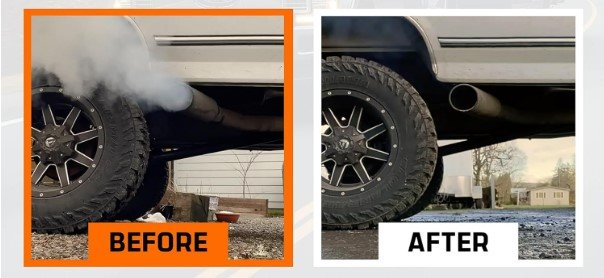How Much Does It Cost to Get Car Back from Towing?

It always starts the same way. You’re walking back to your car after work or a grocery run, and… it’s not there. You blink a few times, hoping you just forgot where you parked. But then reality hits you—your car has been towed. The panic sets in. The stress. The confusion. And of course, the biggest question:
“How much does it cost to get car back from towing?”
This article is for people like you and me—those who’ve either been through this or are terrified it might happen. I’m going to walk you through everything: real costs, hidden fees, personal stories, and smart tips to save time and money. Think of this as the guide I wish I had when it happened to me.
The Real Price of Getting Your Car Back From Towing

Here’s a quick breakdown of typical charges you might face:
| Fee Type | Estimated Cost (USD) |
|---|---|
| Towing Fee | $75 – $200 |
| Daily Storage Fee | $20 – $60 per day |
| Administrative Fee | $10 – $50 |
| Release Fee (off-hours) | $50 – $100 (if applicable) |
| Boot Removal Fee | $50 – $100 (if booted first) |
Example: My car was towed from a no-parking zone in Los Angeles. The towing charge was $185. I had to pay an additional $40 for storage, and $25 in administrative fees. Total? $250. Ouch.
Why the Costs Vary by City, Time, and Even Day of the Week
What most people don’t realize is that towing isn’t always city-controlled. Some cities have private towing companies under contract, and these folks often set their own rates.
Also, the time of day matters. If you’re towed at night or on a weekend, the fees can go up—especially if you’re trying to recover your car during non-business hours.
And then there’s the “daily storage fee” trap. Every day your car sits in the tow yard, it racks up charges. So even if you can’t pick it up for a couple of days because you’re at work or out of town… that’s more money down the drain.
Relatable Tip: Always ask if there’s a grace period before storage fees start. Some lots won’t charge for the first 12-24 hours. It doesn’t hurt to ask.
Understanding the Breakdown: What Are You Really Paying For?
When you’re slapped with a $300 towing bill, it’s easy to feel ripped off. But let’s dissect what’s going on under the hood of that cost:
-
Towing Fee: This is the base charge for hooking up and moving your vehicle.
-
Mileage Fee: Some companies charge per mile to transport your car to the impound lot.
-
Hook-up Fee: It sounds odd, but some bill separately for “attaching” your car to the truck.
-
Storage Fee: Charged daily, and usually starts the moment your car enters the yard.
-
Administrative/Processing Fees: Covers paperwork and system input.
-
Release Fee: If you pick up your car outside of normal working hours.
Pro Insight: You can often negotiate administrative fees or ask to waive them—especially in smaller cities. I once had a $30 admin fee knocked off just by being polite and explaining my situation.
Different Types of Towing and Their Price Tags
Not all tows are created equal. And yes, some will cost you way more than others. Here’s a quick bullet list for clarity:
-
Standard Parking Violation Tows
Usually the cheapest, but still $150–$250 total. -
Accident Recovery Tows
More expensive due to complexity—can go up to $500 or more. -
Private Property Tows
Common at apartment complexes or shopping centers. Often involve higher fees due to third-party towing contracts. -
Police-Initiated Tows
These can include impound or investigation holds, which adds time and extra daily charges.
Personal Experience: The Towing Nightmare I’ll Never Forget
Let me share a quick story that might sound familiar. A couple of years ago, I parked my car outside a friend’s apartment overnight. There was no sign in sight. Next morning? Gone.
Turns out, the property management had quietly updated their towing policy, and they partnered with a super strict towing company. My car was towed 10 miles away to a private lot. I had to Uber there (another $18) and was greeted by a clerk who handed me a bill for $295.
Why so high?
-
$185 towing
-
$60 storage (two days)
-
$25 admin fee
-
$25 for “lot access fee” on a Saturday
That moment taught me two lessons:
-
Always ask your friends if their complex has guest parking rules.
-
Call local police dispatch if your car is missing. They can confirm if it’s been towed versus stolen.
How to Check if Your Car Has Been Towed (Without Panic)
If your car’s missing, breathe. Don’t assume it’s stolen. Here’s how to check without losing your cool:
-
Call Local Police (Non-Emergency Line)
They often keep a record of recent tows. -
Search Online
Many cities have a “Find My Towed Vehicle” website. Just type your license plate number. -
Ask Nearby Businesses or Property Managers
If you were parked near a shopping center, private towing companies may patrol the area. -
Call 3–4 Local Tow Yards
It’s tedious, but sometimes your car isn’t in the main lot, especially in big cities.
How Long Can a Tow Yard Legally Hold Your Car?
Here’s the kicker: If you don’t get your car in time, it can be auctioned off or scrapped. Yep, you heard that right.
In most states:
-
After 30 days, tow yards can claim legal ownership of your car.
-
In some cases, it’s as little as 15 days depending on local law.
Make sure to:
-
Act fast.
-
Bring all your documents when picking it up (license, proof of ownership, insurance).
-
Pay in the right format—some places only accept cash or certified checks.
Pro Tip: I once had to return twice because they wouldn’t take my debit card. Always call ahead and ask what forms of payment they accept.
Smart Ways to Avoid Getting Towed in the First Place
You know what’s cheaper than paying $300 to a tow yard? Not getting towed at all. While some situations are out of your hands, many can be avoided with just a little extra caution.
Here are some practical ways to stay out of the tow truck’s radar:
-
Read the Signs Carefully
Even if there’s just one small “No Parking” sign on the block, it counts. Look for temporary tow-away signs, especially during street cleaning or construction. -
Know the Local Rules
Cities have their quirks. For example, in New York, alternate side parking rules confuse even locals. In San Francisco, don’t park on steep hills without turning your wheels — they’ll tow you for that. -
Use Parking Apps
Apps like SpotHero or ParkWhiz not only help you find parking, but they also show restricted zones. -
Avoid Blocking Driveways or Fire Hydrants
It’s an easy mistake to make, especially late at night. But these violations almost always result in a tow.
Personal Tip: Once, I parked near a corner, thinking I had enough room. Turns out, I was within 15 feet of a fire hydrant. The fine was $100, and the tow added $220 more. That was an expensive lesson in measuring space!
Does Insurance Cover Towing? (Spoiler: Sometimes)
You might be wondering, “Can I file a claim to get my towing fees back?” Well, it depends.
Here’s the lowdown on towing and car insurance:
-
Comprehensive or Full Coverage: Some policies include towing reimbursement, especially if your car was towed after an accident.
-
Roadside Assistance Add-Ons: These cost about $10–$30 per year and often cover towing up to a set distance (like 15 or 30 miles).
-
Credit Card Perks: Some cards (like Amex or Chase Sapphire) offer roadside benefits if you pay your car rental or gas with them.
But—and it’s a big but—most insurance policies don’t cover towing due to parking violations. If you got towed for illegal parking, that’s on you.
Helpful Hint: I once had my car towed due to a breakdown, and my insurance reimbursed me the full $180 after I submitted a receipt. Always keep those invoices.
Towing Fees by State: Why Location Matters
Towing fees aren’t universal. What you pay in Texas might be completely different from what someone pays in California or Florida. Each state, and even individual cities, set their own limits (or lack thereof).
Here’s a small sample of average state-by-state towing fees:
| State | Base Towing Fee | Daily Storage Fee |
|---|---|---|
| California | $150 – $275 | $40 – $60 |
| Texas | $100 – $250 | $20 – $35 |
| Florida | $115 – $250 | $25 – $50 |
| New York | $185 – $300 | $50 – $60 |
| Illinois | $125 – $275 | $35 – $45 |
This shows how the answer to “how much does it cost to get car back from towing” depends a lot on where you are.
Tips to Reduce or Waive Towing Fees
Sometimes, a little charm (and a few facts) can save you money. Here are some tried-and-true methods to lower your towing bill:
-
Ask for a Breakdown of Charges
Politely request a full invoice. You may spot duplicate or questionable fees you can dispute. -
Claim Financial Hardship
Some cities have assistance programs for low-income individuals to reduce or waive towing fees. -
Negotiate the Storage Fee
If your car was just towed, and you arrive within a few hours, ask if they can skip the storage charge. -
File a Complaint
If you believe your car was towed illegally, file a report with your local consumer protection office or city hall.
True Story: My cousin once got his car towed for blocking a loading zone. But he took a photo that proved the sign was bent and unreadable. He submitted it to the city and got fully reimbursed within 3 weeks.
FAQs: What Everyone Wants to Know About Car Towing Costs
1. How much does it cost to get car back from towing after 3 days?
It depends on the city and the daily storage fee. If your base tow charge was $150 and storage is $30/day, expect around $240–$300 total after 3 days.
2. What happens if I can’t afford to pay the towing fee?
The towing company can legally keep your car until payment is made. If left unclaimed, they may auction it after a certain period (usually 15–30 days).
3. Can I dispute a towing charge?
Yes! If you believe your car was wrongfully towed, you can file a complaint with the city, or even take it to small claims court. Be sure to gather photos, receipts, and documentation.
4. Why did I get charged an “administrative fee”?
This fee covers the paperwork and data entry process for logging your car into the system. It’s usually $10–$50, depending on location.
5. Do I have to pay in cash to get my car back from the tow yard?
Not always. But some tow yards are cash-only, especially smaller or privately owned ones. Always call ahead to confirm accepted payment methods.
6. How long do I have to get my car back before it’s sold?
In most places, the limit is 30 days, but it can be as short as 15 days depending on state laws. After that, the vehicle can be sold at auction.
7. Can my towing cost be covered by AAA or roadside assistance?
Yes, if your tow is due to a breakdown, and you’re a member. But AAA won’t pay for impound towing from parking violations.
Final Thoughts: Be Prepared, Not Surprised
No one wakes up thinking, “Today’s the day my car gets towed.” But when it happens, the emotional and financial impact is real. Whether it’s due to a mistake, bad luck, or unclear signage, it helps to know what you’re facing and what to do next.
To recap:
-
The answer to “how much does it cost to get car back from towing” varies but usually falls between $150 and $500.
-
Costs include towing, storage, administrative, and release fees.
-
Where and when you were towed affects the total cost.
-
Act fast, stay calm, and know your rights.





